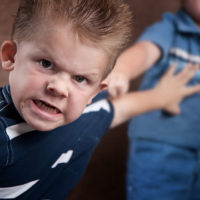Parenting & Family
-
Slides for Emanuel Miller 2019 ‘Attachment and Early Intervention’
To download, or view, each of the speaker slides for this event please click the link of the named speaker. 09:20 – Professor Marinus H. van IJzendoorn – The vicious cycle of early harsh and insensitive parenting: how much is inherited, how does it affect the brain, and how can we break it? 10:20 Emanuel Miller Memorial Lecture: Professor David Olds – Using […]
Read more -

A theory of youth mental health recovery
Mental health disorders have a negative impact on the individual, society and global economy. The prevalence of mental disorders is increasing in young people, and if unaddressed, research has shown that they may develop into severe and chronic illnesses. Despite this, research into youth mental health recovery is limited.
Read more -

In Conversation… Parenting – Prof. Judy Hutchings & Dr. Margiad Williams
What is harsh parenting? What are the latest interventions? Plus what’s in the pipeline?
Read more
All this and more detailed in this podcast with Prof. Judy Hutchings & Dr. Margiad Williams, both Bangor University. -

Continued family dysfunction accounts for the association between childhood adversity and adolescent self-harm
Non-suicidal self-injury (NSSI) is any deliberate attempt at inflicting physical self-harm in the absence of suicidal intent. NSSI peaks during adolescence, with roughly 17% of adolescents reporting having engaged in it at least once.
Read more -

Interview with Dr. Arnon Bentovim
Dr Arnon Bentovim, Child and Family Psychiatrist, and founder the Child and Family Practice, talks about child and family training to develop and train evidence-based approaches to assessment, analysis, and intervention.
Read more -

In Conversation… Dr Arnon Bentovim
Dr Arnon Bentovim, Child and Family Psychiatrist, and founder the Child and Family Practice, talks about child and family training to develop and train evidence-based approaches to assessment, analysis, and intervention.
Read more -

Aggression toward siblings during the preschool years: When does it become atypical?
Most children grow up with siblings. During early childhood, siblings spend a great deal of time together and must navigate challenging situations such as sharing toys and parental attention, features that make conflict inevitable and often emotionally intense.
Read more -

Parenting practices that support the sensation-seeking child
Sensation-seeking is a personality trait of people who go after varied, novel, complex and intense situations and experiences. Sensation-seekers are even willing to take risks in the pursuit of such experiences. Until now, research has primarily focused on how sensation seeking relates to the development of undesirable behaviours, including drug and alcohol abuse, high risk sexual behaviours (like unprotected sex or having multiple partners), gambling and delinquency.
Read more -

Parental responses in predicting children’s PTSD
Many children will be exposed to a potentially traumatic situation at some point in their childhood -that is, an event where there is a potential threat to life or of serious injury to the child, or to someone close to them. These events can range from common unintentional or accidental traumas, such as car accidents or serious sporting accidents, to deliberate harm, such as assault or maltreatment. Such trauma exposure can have a significant negative impact on a child’s psychological wellbeing.
Read more -

Most Cited JCPP Articles #9 of 60
Most cited JCPP papers #9 of 60: Antenatal maternal stress and long-term effects on child neurodevelopment: how and why?
Read more